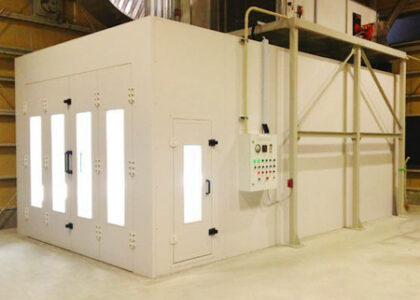The OEM insulation market size is anticipated to reach US$ 24.5 billion by 2033, up from US$ 16.2 billion in 2023. Throughout the forecast period, FMI anticipated that the demand for OEM insulation could increase globally at an average CAGR of 4.2%.
OEM insulation is designed to resist or stop the transmission of heat and noise. People and equipment are harmed by the varying temperatures in various places. Air temperature and noise pollution have increased as a result of increased industrialization and transportation. In several end-use industries, OEM insulation is now necessary as a result of all these factors.
The market is likely to proliferate primarily owing to the expanding construction sector throughout the anticipated period. Buildings with OEM insulation are protected from noise pollution and heat transmission in industrial areas.
In Europe and North America, the use of OEM insulation is a crucial component of the construction sector. The demand for OEM insulation in the construction sector has increased significantly as a result of stricter building codes.
Given the significant growth in the transportation industry, there has been a surge in the demand for OEM insulation in recent years. The demand for these services is likely to continue to rise over the projection period as a result of the government’s increased spending in recent years.
During the forecast period, the market expansion is anticipated to be aided by the rising demand for acoustic insulation. In the upcoming years, there is likely to be a rise in demand for OEM insulation owing to the rising requirement for HVAC, ventilation, and hoops in the building industry.
Given the fact that air conditioners are utilized in both public and private vehicles, an increase in the number of these vehicles could aid in the market expansion. The interior components of the car are crucially fire-proofed largely due to insulation. The lifespan of cars is significantly increased by the use of several types of insulating materials.
For insights on global, regional, and country-level parameters with growth opportunities from 2023 to 2033 – Download a sample report: https://www.futuremarketinsights.com/reports/sample/rep-gb-2280
Asia Pacific is anticipated to continue to be the leading market for OEM insulating products in terms of revenue. By 2033, the regional market is expected to grow 1.2X. OEM insulation market expansion during the forecast period is clearly foreseen by the booming industrial demands in the Asia Pacific region.
Key Takeaways
- By 2033, a value of US$ 5.3 billion is projected for the United States OEM insulation market.
- The market in India is expected to reach US$ 1.3 billion in value by 2033, developing at a rapid CAGR of 6.1% between 2023 and 2033.
- The market in the United Kingdom is estimated to be worth US$ 580.7 million by the end of the forecast period.
- The OEM insulation market size in China is likely to reach US$ 4.2 billion by 2033, exhibiting a CAGR of 3.9%
Competitive Landscape
OEM insulation suppliers are concentrating on creating novel and long-lasting insulating solutions to fulfill the rising demand for environmentally friendly and energy-efficient products. To produce cutting-edge insulation materials with greater thermal performance, durability, and safety, they are spending money on research and development. They are also implementing innovative manufacturing technologies and procedures to increase production efficiency and lessen their impact on the environment.
Key Contributors to the OEM insulation Market are
- BASF
- Evonik
- Paroc Group Oy
- SAINT-GOBAIN
- Armacell International S.A
- Johns Manville Corporation
- Henry Company
- Styrotech, Inc.
- NCFI Polyurethanes
- Morgan Advanced Materials
- Scott Industries LLC
- Anco Products Inc.
Recent Developments
- Armacell International S.A. released ArmaGel DT, a next-generation flexible aerogel insulation blanket for cryogenic and dual-temperature purposes, in August 2020.
- Evonik introduced a brand-new line of specialized feedstocks named TEGO® Therm in November 2022 to considerably improve the performance of thermal insulation coatings.
Interested to Procure the Data? Inquire here: https://www.futuremarketinsights.com/ask-question/rep-gb-2280
Key Segments
By Material:
- Glass Wool
- Mineral Wool
- Foamed Plastics
- Others
By Insulation Type:
- Blankets
- Rolls & Batts
- Loose Fill
- Others
By End Use:
- Aerospace
- Automotive
- Marine
- HVAC Equipment
- Building & Construction
- Consumer Appliances
- Other Industrial
By Region:
- North America
- Latin America
- Europe
- Asia Pacific
- Middle East & Africa
Related Links:
https://vocal.media/stories/textile-auxiliaries-market-size-share-demand-and-trends-by-2032
https://fmiresearchreports.hashnode.dev/textile-auxiliaries-market-size-share-demand-trends-by-2032
https://trendingrelease.blogspot.com/2023/04/textile-auxiliaries-market-size-share.html
About FMI
Future Market Insights (ESOMAR certified market research organization and a member of Greater New York Chamber of Commerce) provides in-depth insights into governing factors elevating the demand in the market. It discloses opportunities that will favor the market growth in various segments on the basis of Source, Application, Sales Channel and End Use over the next 10-years.
Contact Us:
Future Market Insights Inc.
Christiana Corporate, 200 Continental Drive,
Suite 401, Newark, Delaware – 19713, USA
T: +1-845-579-5705
For Sales Enquiries: sales@futuremarketinsights.com
LinkedIn| Twitter| Blogs


